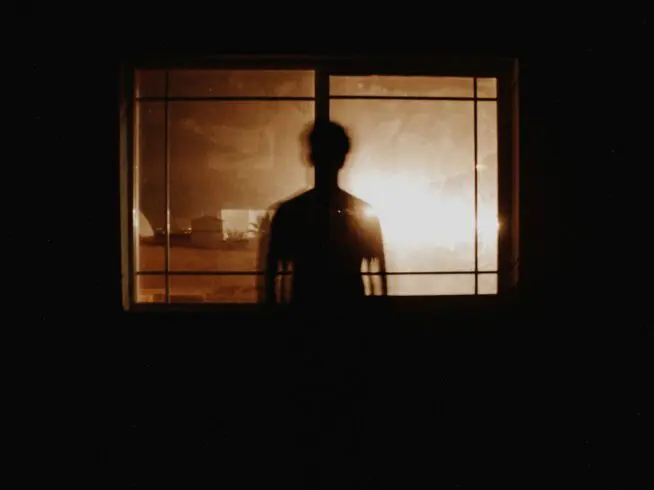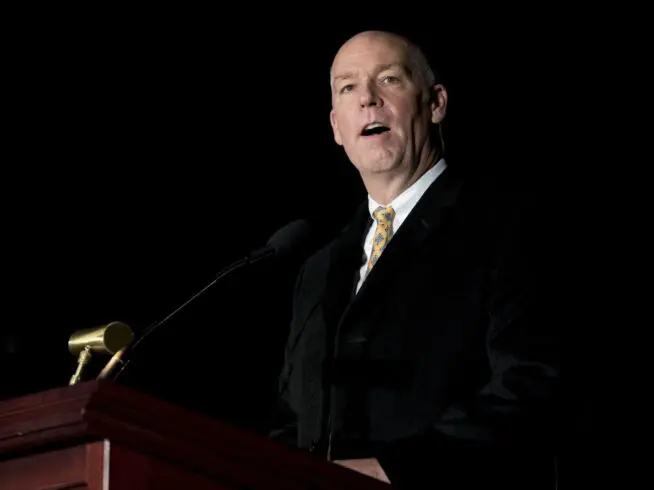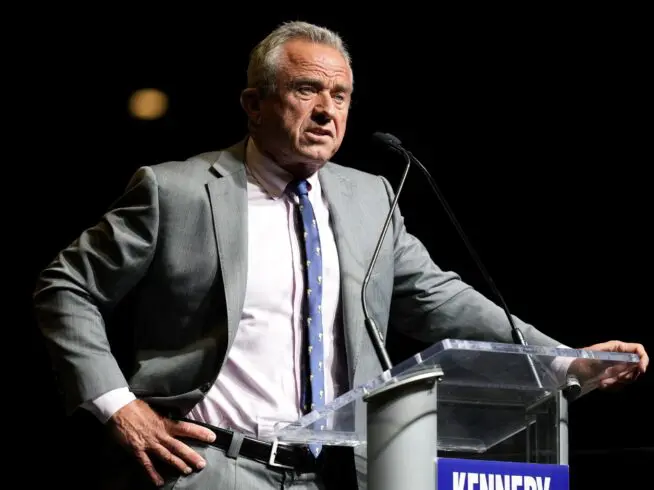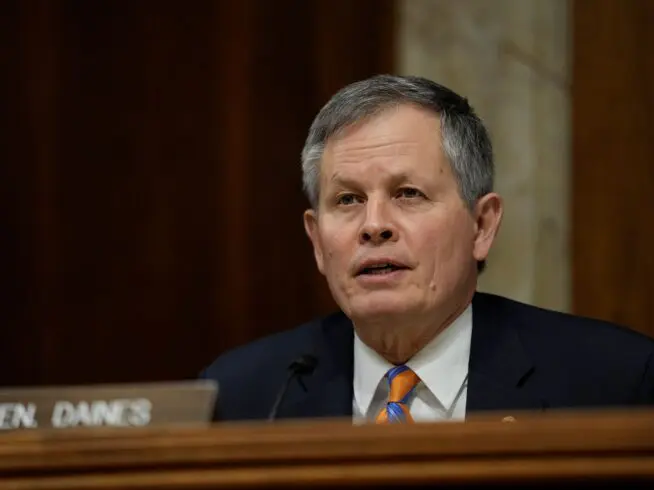Republicans Greg Gianforte and Tim Sheehy support bills that defund public education
The Montana Quality Education Coalition is legally fighting bills that would use public funding for private education in the state.

A pro-public education coalition went to a Montana district court on April 22 seeking an injunction against a new law allowing privatization of services for disabled students. The group argues that the law not only sets a bad precedent in its own right, but is also a stalking horse for a second law funneling public money to private schools not subject to local control. That same group, Montana Quality Education Coalition, has already won a partial injunction against that second law. Ultimately, it is seeking to have both ruled unconstitutional.
“I think they [the two laws] are both part and parcel of the push for privatization of education,” Rylee Sommers-Flanagan, lead attorney on both cases, said in an interview. She said the second “is so extreme and really carves out an entirely separate accountability system that lands outside the Montana Constitution.”
Privatization of education is central to the Republican agenda in the state, strongly backed by Gov. Greg Gianforte and his fellow Bozeman businessman, Tim Sheehy, who is running to unseat incumbent Democratic Sen. Jon Tester, a former public school teacher and vocal supporter of public education.
The two laws under litigation were part of a collection of three passed during the 2023 legislative session, all aimed at major changes in the state’s education system. The law not under litigation drew mostly Republican but some bipartisan support and would create charter schools under the auspices of local school districts and school boards. The two being challenged are far more sweeping and controversial.
One of those would allow charter schools, but these schools would exist independent of local control, ultimately subject only to rules established by an appointed commission within the state Office of Public Instruction. The other, the subject of the court action on April 22, applies only to disabled students. It allows those students to opt out of public schools, taking the public money with them into what is essentially a voucher system. They and their parents could then spend that money as they wished on private care or even home-schooling. That, says Sommers-Flanagan, is the problem.
“What you see is public school funding that is directly routed out into an unaccountable system,” she said. She added that this will harm disabled students, which is why the group Disability Rights Montana has joined the plaintiffs. The law would allow withdrawal of those students from public schools but at the same time from the protections of long-established standards and professionalism governing public schools and locally elected school boards.
There are strong signals as to where all this is headed under both of the contested bills. For instance, Sommers-Flanagan said, Elsie Arntzen, the state’s controversial superintendent of public instruction, organized an information meeting on the new law for disabled students and invited a collection of vendors peddling services for privatized education. She followed with an official state-distributed newsletter touting one particular vendor that offers home-schooled students “wholesome” books. “A wholesome book reflects the truth of life as seen through Biblical teachings,” according to that vendor’s website.
Judge Christopher Abbott of the 1st Judicial District granted a partial injunction in the charter school case that prevented establishment of such schools until the entire case is decided. He did not, however, bar the establishment of a special state commission to implement that bill.
Gianforte appointed Trish Schreiber to head that commission. She is an activist for privatizing education, listed as a staffer and senior fellow for education with the Frontier Institute, a right-wing think tank. Arntzen is listed as an author with that same group, which is a node on the State Policy Network, a nationwide collection of right-wing think tanks associated with the Koch brothers.
Ultimately, the goal of the legislation in Montana seems to be channeling public money to religious schools. Sommers-Flanagan said, “Honestly, the commission is making its own rules and not being incorporated into the board of public education, which means that you don’t have any prevention of those charter schools … being religiously run.”
Gianforte has long supported just this goal. The governor, a wealthy man, has established a family foundation that donates to a range of religious and right-wing causes. However, according to the 2019 report of the Gianforte Family Foundation, its largest donation that year was, by far, $2,036,817 to a national group based in Maryland, the Alliance for Choice in Education. That group intervened in a U.S. Supreme Court case in 2019 seeking to overturn the ban on using public money for religious education in Montana.
Gianforte sent his own four children to the Petra Academy in Bozeman, a private religious school, and has donated millions of dollars to it.
Likewise, Sheehy sends his children to Emerge, a private Christian school in Bozeman. Speaking at a Republican event, he defended his decision by alleging public schools are lacking “faith, family and choice,” that last word being the code word for privatizing education. All Montana parents are free to choose home-schooling or religious education under current law, but can’t, as it now stands, subsidize that choice with public money.
Sheehy is himself a product of an elite private school.
All of this is pushing the issue to prominence in the run-up to November’s election. Gianforte’s opponent in that race, Democrat Ryan Busse, recently circulated a social media post by Kendall Cotton, the head of the Frontier Institute, endorsing an idea from Corey DeAngelis, an activist in the right-wing network for privatizing schools. The post said: “We spend $15,424 per child per year in public schools. Imagine if that money went directly to families. A teacher could set up a microschool with just 10 students. and pull in $154,240 a year.”
Busse’s campaign called the post horrifying. In a statement, he said: “Kendall Cotton endorses the harebrained, completely unworkable idea of dismantling public education and giving funding ‘directly to families’ to set up microschools instead. And this right-wing think tank bozo is actually advising our governor.”



